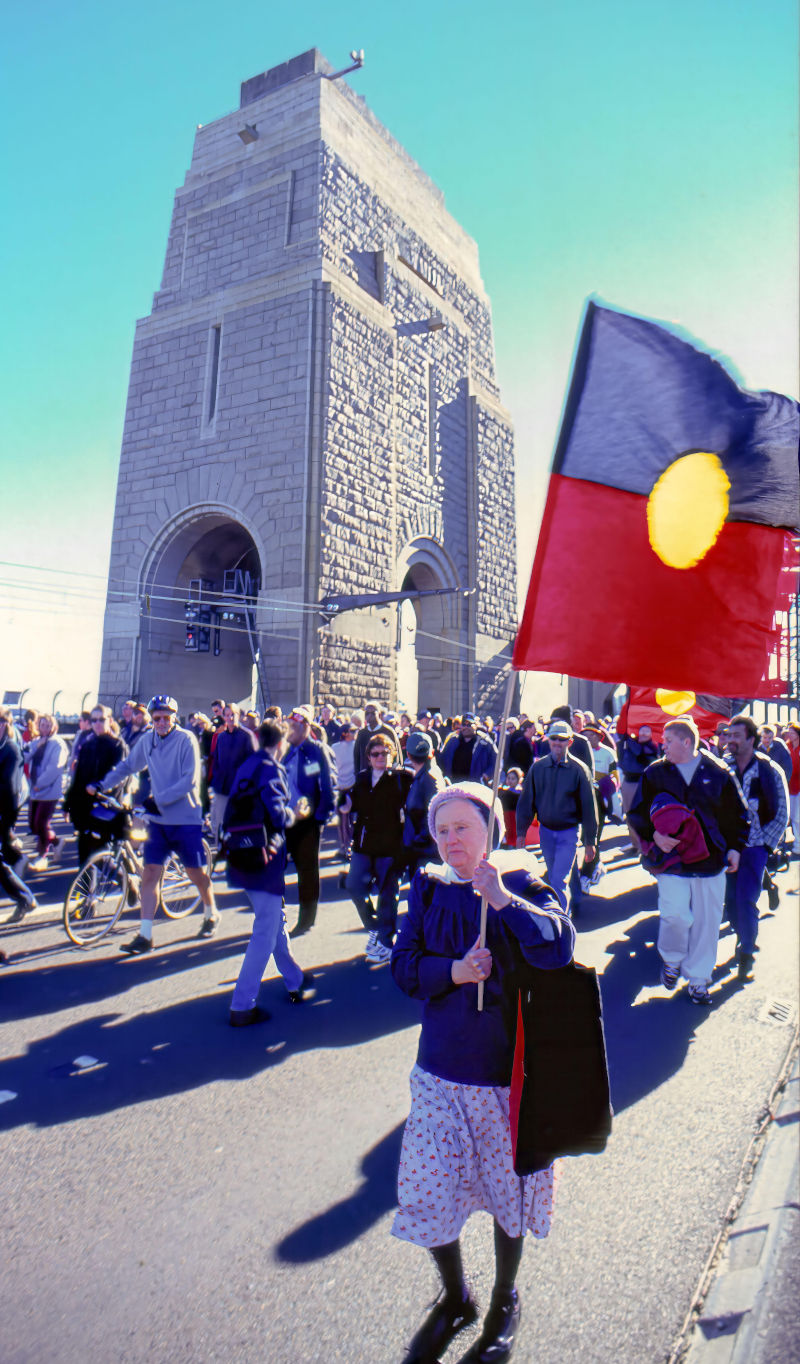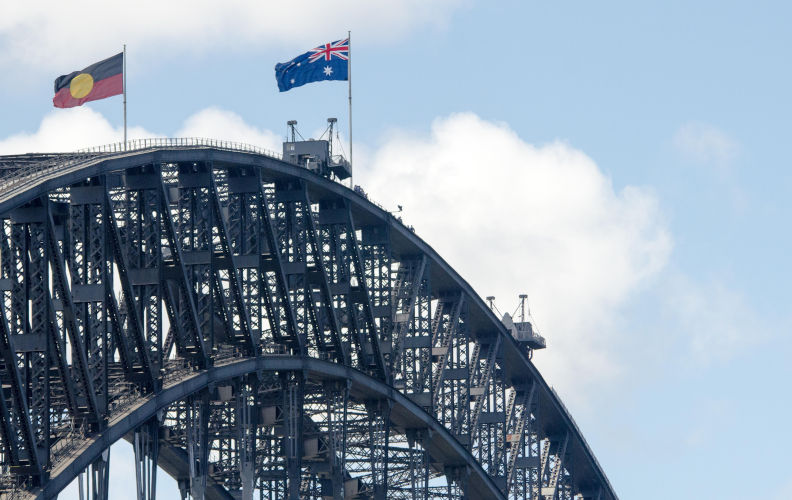Sydney Harbour Bridge walk – unsuspected joy and hope
June 1, 2025
At the end of reconciliation week it is time to look back at a extraordinary event. While Aboriginal people remained quiet and uncomplaining, most of our leaders showed very little interest in them. And “average Australians”, they believed, were right behind them. Didn’t social media and talkback radio prove that?
But who are these average Australians? I once had a deeply thought-provoking encounter with them.
It is 28 May 2000. A grand historic event is to take place on the Sydney Harbour Bridge: a reconciliation march. Cities and towns all over the country are planning to echo it.

The build-up has been long and intense. The media are agog with speculation – it’s rumoured that crowds are massing from all over the state. Then prime minister John Howard has even gone so far as to forbid Coalition MPs from attending the march.
I’m house-sitting in south-west Sydney. The big day dawns cold and windy, but the sun dazzles. I’m feeling extraordinarily nervous. There has been so much talk of reconciliation recently! Now is the moment of truth. Everything depends on numbers. Without a decent crowd, the nation’s coldness will be there for all the world to see.
But how many people care a hoot? The prime minister has refused to say sorry for past wrongs. A great devotee of talkback radio, he’s sure he has his finger on the pulse of the nation. He never doubts that the ordinary Aussie-in-the-street will back him to the hilt – and richly reinforce his stand with their votes.
At Holsworthy Station, I scan the platform anxiously. There’s quite a crowd waiting for the train. But no demonstrators. No excited groups of students, or serious-looking lefty types, or long-haired, obvious environmentalists. No one with banners or badges or the nervous-but-defiant expressions of those about to stand up in public and voice unpopular opinions. Only ordinary people from many nationalities going about their ordinary lives: catching the train to work, or going into town for a spot of shopping or a movie.
My eyes fill with tears. So Howard, astute politician that he is, has been right after all. Nobody cares diddly-squat. Standing there in the cold wind, I feel bitterly sad, and more alone than I have for years.
On the train I scrutinise the faces bleakly, hoping against hope. Surely, among all these people, someone has to be going to this momentous march? What about that middle-aged couple talking quietly together? Or those two girls laughing and comparing their nail polish? Or one of the many silently reading their newspapers?
Nope. These are the ordinary Australians we hear so much about – and they care for nothing but their own small comforts. Ah well. Maybe my young great-nephews, whom I’d suggested bringing to the march, are better off just playing their usual Saturday soccer after all…
Station by station the train fills. It’s only near the university, and the inner city, that my heart lightens a bit: some young people squeeze on, clearly headed for the march. But they’re a pathetic few.
Then the bombshell.
We pull into Central Station. The platform is puzzlingly thick with people. A voice booms over the loudspeaker: “All those for the Harbour Bridge walk should alight here for special trains.”
And almost all the people I’ve been travelling with in that packed carriage right across Sydney rise to their feet, and get off the train.
You should have heard the laughter! The bellows and sobs of joy and disbelief! The mass of people who, for up to an hour, have sat or stood silently together, faces impassive, eyes averted, now stare at each other in amazement, and burst into gales of laughter. Everywhere complete strangers hug, slap each other on the back; everywhere, tears of relief and joy spill down laughing cheeks.
All along the packed platform people exclaim in excitement, “Incredible! I thought there was hardly going to be anyone! I thought I was the only one!”
That sunny, cold, windy walk across the Sydney Harbour Bridge remains one of the most exhilarating moments of my life. I’m sure countless others would agree. Under vapour trails that spelled out against a blue sky the longed-for word “Sorry”, all morning a tide of humanity swept down the road. No one who took part will ever forget it. To be one of a crowd of a quarter of a million “ordinary people” — and countless others in cities and towns all over the country from Hobart to Melbourne to Brisbane, from Adelaide to Perth to Darwin — full of peace and goodwill, united in hunger and thirst after justice, was to experience real uplifting hope for the world.
Sadly, the immense goodwill that spurred the reconciliation marches in 2000 had little immediate impact. Outright hostility at the top came down like a heavy foot on the brake; old deep-rooted community passivity did the rest.
But somewhere inside the spark still flickered. The euphoria at Kevin Rudd’s 2008 apology, his first act as prime minister, surprised everyone.
Now, with a Treaty, an Aboriginal Voice and changes to the Constitution at least thrumming in the public mind, Australians have a unique chance to look squarely at ourselves, to uncover a few dark, unacknowledged corners deep within us – and hopefully to get a good stiff broom into them.
The views expressed in this article may or may not reflect those of Pearls and Irritations.


